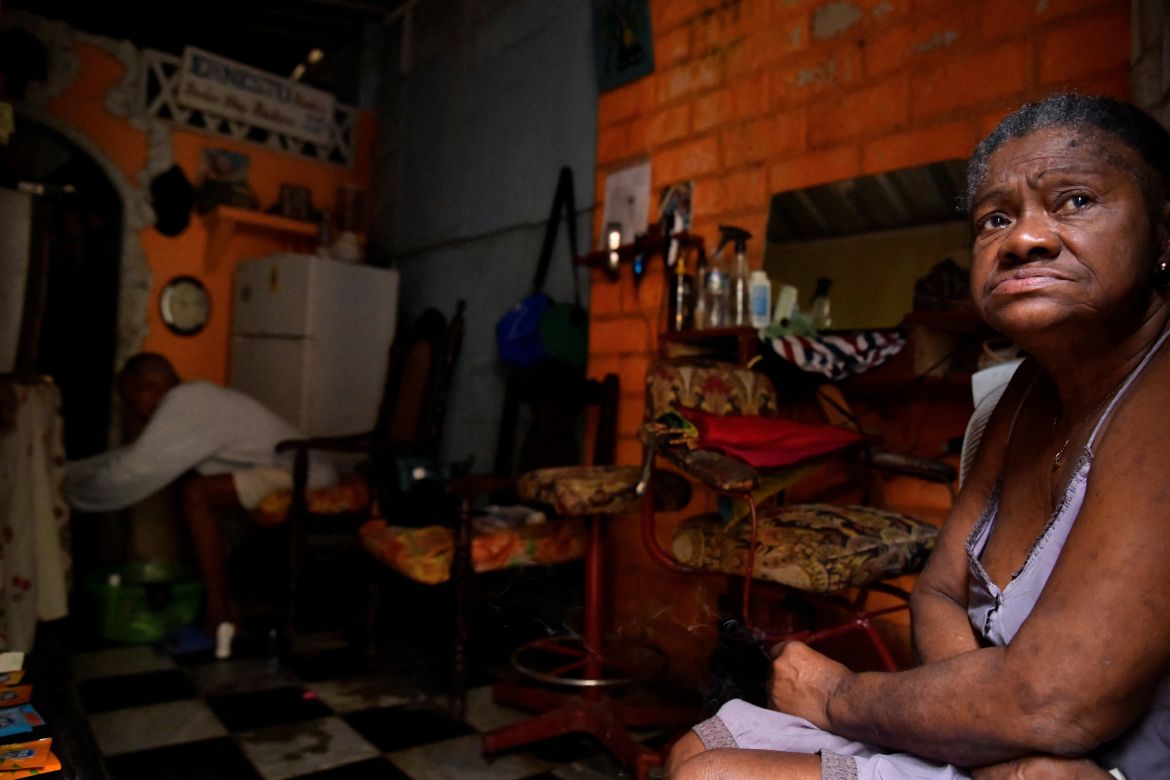In Pictures
Residents in Cuba on October 19 wait for electricity to return after the island was struck by a nationwide power outage. [Norlys Perez/Reuters]By Al Jazeera StaffPublished On 19 Oct 202419 Oct 2024
The Cuban government has started to restore power to the millions of residents left in the dark during a nationwide power outage this week.
On Saturday, Cuban President Miguel Diaz-Canel sought to reassure the country, amid the continuing struggles with the electrical grid.
“We are working hard and tirelessly to recover the electrical system, according to priority, in order to achieve stability,” he wrote on the social media platform X.
He also praised community leaders during the crisis. “It’s admirable, the wisdom and poise of those who are heroes in these complicated hours, many of them young.”
The president’s comments come after the entire country was plunged into darkness on Friday, in what experts called the worst blackout in two years.
It was the culmination of several days of flickering power, starting on Thursday.
Authorities at the time warned the electrical system was overloaded, and they called on nonessential activities to stop. Schools were closed until Monday, and certain state workers were sent home.
By Friday, however, one of the primary power plants — the Antonio Guiteras plant in the western part of the island — had failed.
That caused the power grid to collapse, leaving the entire country without electricity.
State-run media reported on Saturday that there was a second collapse, but that crews had begun reconnecting the three major power plants.
“I cannot assure you that we will be able to complete linking the system today, but we are estimating that there should be important progress today,” Lazaro Guerra, Cuba’s top electricity official, told a morning news programme, according to the Reuters news agency.
The Ministry of Energy and Mining also acknowledged the Saturday morning hiccups in a statement.
“Due to the technical complexity of the electrical system restoration process, disconnections of the subsystems may occur, as happened in the west,” it said. “Work is being done on their restoration.”
President Diaz-Canel visited the National Electricity Office on Saturday to show his support for the recovery efforts. “We will emerge from this difficult situation,” his administration wrote on social media.
Energy Minister Vicente de la O Levy also offered updates about the progress.
“Generation will gradually continue to increase,” he said, explaining that they “already have 500 megawatts in the system” and “various substations in the west have energy”.
Cuba has long struggled with blackouts and instability in its electrical grid, as the result of ageing infrastructure, fuel shortages and a floundering economy.
Officials also pointed to the recent ravages of Hurricane Milton, which struck the country with heavy winds and flooding on October 9.
Critics, however, have also blamed mismanagement in the Cuban government for the energy crisis.
Just this year, in March, hundreds of protesters demonstrated in the capital Havana against food and fuel shortages, as the country’s economy suffers one of its worst crises since the 1990s.
United States sanctions have exacerbated the situation, as has instability in countries like Venezuela, one of Cuba’s top petrol suppliers.
